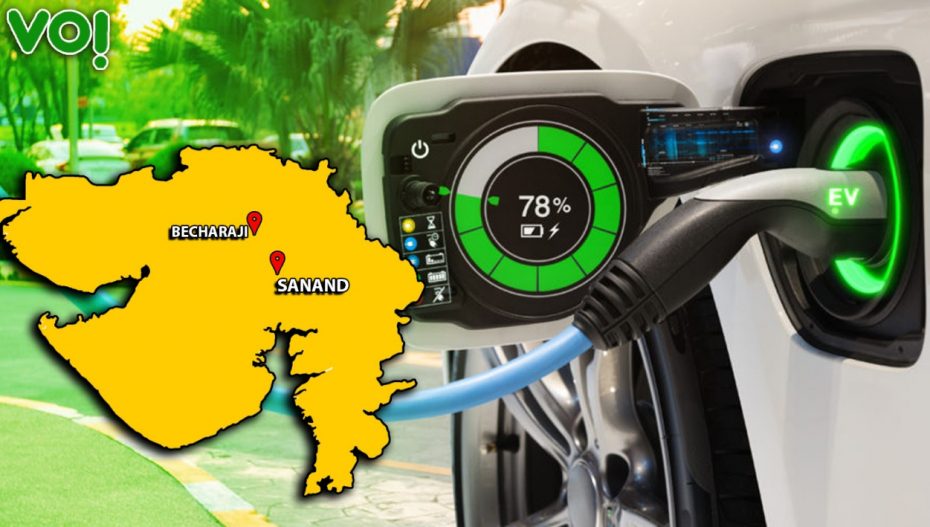Located 106 kms from Ahmedabad, Madal Bechraji is all set to become the hub of electric vehicle manufacturing not just in Gujarat but in India. Similarly, Sanand at 22 kilometres from Ahmedabad, was chosen for the Tata Nano Plant. Soon, Ford and Honda also set up shop in the same town.
Why Sanand and Bechraji? This is well explained by Pranav Shah, state chairperson, Gujarat Federation of Automobile Dealers Associations (FADA): “Both satellite townships are close to Ahmedabad. Executives stay in the city and get cheap manpower in Bechraji and Sanand. This is a huge benefit for EV manufacturing units.”
Sanand also offers competitive incentives for firms looking at setting up operations within the region. These include income tax benefits, exemption from dividend distribution tax, indirect tax incentives, zero customs duty, exemption from central sales tax and exemption from service tax.

The same sentiments are echoed by Vivek Sharma, manager, Kataria GreenAther: “Most manufacturing units in Sanand and Bechraji are set up on lease. Like Bengaluru has created an ecosystem conducive for start-ups, Sananad and Bechraji have done it for EV manufacturing.”
Gujarat has witnessed a 950 percent increase in the sales of electric vehicles (EVs) over the past couple of years. According to official sources in the state government, by the end of 2019, the number of registered EVs was hardly over 950 which increased to 1,119 in 2020. Suddenly, the number of registered EVs surged to 9,780 by the end of 2021 showing a 956% rise in the registration of EVs in Gujarat.

In March 2022, minister of state for industries, Jagdish Panchal, congratulated Tata Motors Limited (TML) for its manufacture of close to five lakh cars between 2015-16 and 2021-22. The Sanand plant has led to direct and indirect employment for over 26,000 people in the region. The Nano project was made possible by the state government assigning 445 hectares land at the rate of Rs 900 per square metre.
Rising fuel prices is a huge reason for automobiles to go the electric way. Petrol stands at 105.08 ₹/litre and the prices are on an upward trend. The incentive to set up EV plants is immense and the land in Sanand comes at a cheaper rate.
Gujarat’s EV policy
The Gujarat Electric Vehicle Policy 2021 provides for subsidies of up to Rs 20,000 on EVs in the two-wheeler category, Rs 50,000 for three-wheelers, and up to Rs 1.5 lakh for cars. The state government has also waived off e-vehicles registered in Gujarat RTOs from paying the registration fee.
According to the state government’s calculations, Gujarat’s subsidy for EVs stands at Rs 10,000 per kilowatt, the highest in any state. Also, capital incentive of up to Rs 10 lakh or 25 per cent capital subsidy of the project cost, is to be provided for development of charging stations.

Explaining the rise of EV manufacturing units in Gujarat, Abhimanyu Tripathi, director, Steller Skoda, Gujarat added: “Honda is in talks for acquiring land in Bechraji while Tata motors will soon acquire the Ford plant that shut down in Sanand. In next two years, we will see Gujarat becoming the hub of EV in India. Supportive policies by the Gujarat government are definitely a catalyst in bringing this change.”
It is reported that both companies have submitted a proposal for transfer of ownership of Ford’s passenger vehicle manufacturing plant to Tata Motors. Ford Motor Company had invested 4,500 crores to set up the plant, which has a manufacturing capacity of 2.4 lakh units along with 2.7 lakh engines per annum.












